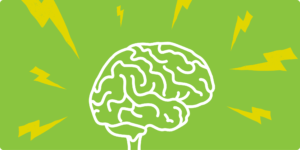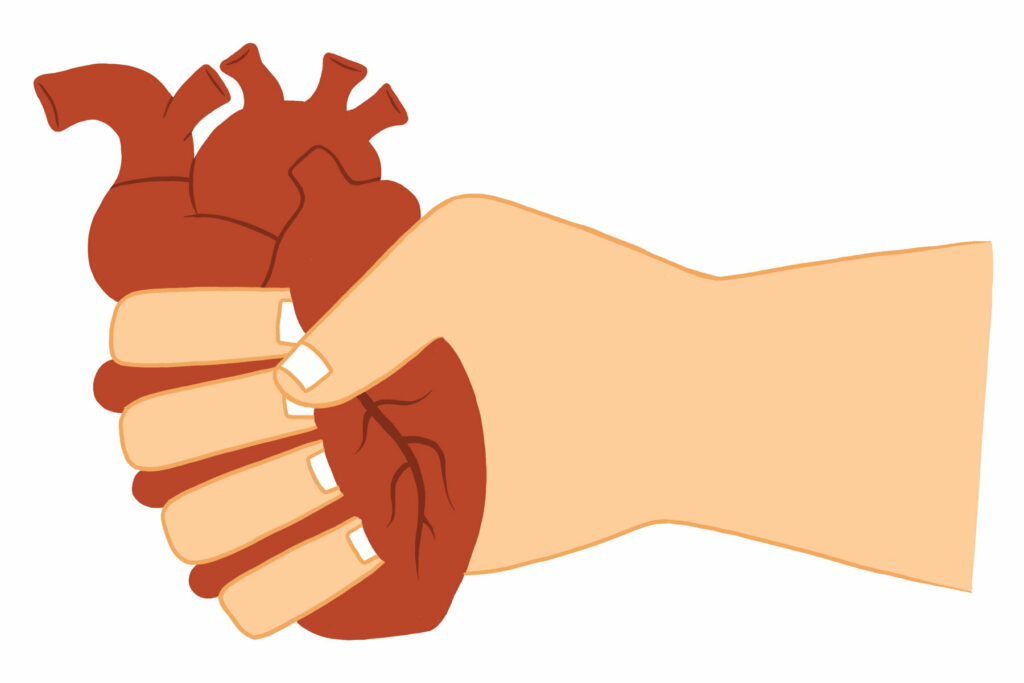It’s no secret that stress is bad for you. We all know that when we’re feeling stressed out, it’s not good for our mental or physical health. But did you know that stress can also lead to a heart attack? It’s true! In this blog post, we will discuss the dangers of stress and how it can lead to a heart attack. We’ll also provide some tips on how to reduce stress in your life.
Contents
What Is Stress?
 In today’s day and age, stress is no stranger to anyone. We all experience stress in our lives, whether it be from work, family, or other personal problems. But what exactly is stress? Stress is your body’s response to any type of demand or threat. When you perceive a situation as being dangerous or challenging, your body releases hormones such as adrenaline and cortisol. These hormones increase your heart rate and blood pressure and prepare your body to either fight or flee the perceived threat.
In today’s day and age, stress is no stranger to anyone. We all experience stress in our lives, whether it be from work, family, or other personal problems. But what exactly is stress? Stress is your body’s response to any type of demand or threat. When you perceive a situation as being dangerous or challenging, your body releases hormones such as adrenaline and cortisol. These hormones increase your heart rate and blood pressure and prepare your body to either fight or flee the perceived threat.
While a little bit of stress can be helpful (it can help you perform better in challenging situations), too much stress can be harmful. When you’re constantly under stress, your body is in a state of high alert, which can lead to serious health problems.
How Does Stress Cause Heart Attack?
 By now we know that excessive stress is a root cause of a lot of health issues. The more grave and fatal one is a heart attack.
By now we know that excessive stress is a root cause of a lot of health issues. The more grave and fatal one is a heart attack.
- When we experience stress, our heart rate, and blood pressure increase. This puts added strain on our cardiovascular system and can lead to a heart attack. In addition, chronic stress can also lead to the development of plaque in our arteries (a condition known as atherosclerosis). Plaque buildup narrows our arteries and makes it more difficult for blood to flow through them. This can lead to a heart attack or stroke.
- When you are stressed, your body goes into fight or flight mode. This means that your heart rate and blood pressure increase, and your blood vessels constrict. Too much of this can eventually lead to a heart attack.
- There is another theory that suggests that stress can trigger a heart attack by causing the formation of blood clots. When we’re under stress, our blood becomes thicker and stickier. This makes it more likely to clot. If a clot forms in one of our arteries, it can block the flow of blood to the heart and cause a heart attack.
- Moreover, stress can also lead to unhealthy behaviors such as smoking, drinking too much alcohol, overeating, and not getting enough exercise. These behaviors further increase our risk of developing a heart attack.
- Lastly, if you have other existing physiological disorders such as hypertension, migraines, diabetes, or sleep apnea, stress can worsen these conditions and increase your risk of having a heart attack. This is because stress can cause these disorders to flare up and make them more difficult to manage.
So, as you can see, stress is a serious issue that can lead to a heart attack. If you’re constantly feeling stressed, it’s important to find ways to reduce stress in your life.
What Are The Warning Signs?
Heart attacks can be extremely confusing because the symptoms can vary from person to person. It’s important to remember that not everyone will experience all of the symptoms, and some people may only experience a few.
The most common warning signs of a heart attack are:
- Chest pain or discomfort that may feel like pressure, squeezing, or pain in the center of your chest
- Pain or discomfort in other areas of your upper body such as your arms, jaw, neck, back, or stomach
- Shortness of breath
- Nausea
- Lightheadedness
- Cold sweats
If you experience any of these symptoms, it’s important to call for immediate help. Stress heart attacks can prove to be fatal if not treated on time.
How To Differentiate Between Stress And A Heart Attack?
 The best way to differentiate between stress and a heart attack is by the symptoms. As we mentioned before, the symptoms of a heart attack can vary from person to person. However, there are a few key differences that can help you distinguish between the two.
The best way to differentiate between stress and a heart attack is by the symptoms. As we mentioned before, the symptoms of a heart attack can vary from person to person. However, there are a few key differences that can help you distinguish between the two.
- The first difference is the duration of the symptoms. With a heart attack, the symptoms will usually last for more than a few minutes. They may even persist for hours. On the other hand, the symptoms of stress usually come and go. They may last for a few minutes and then disappear.
- Another difference is the intensity of the symptoms. The symptoms of a heart attack are usually more severe than the symptoms of stress. With a heart attack, you may feel like you’re about to pass out or that your chest is being crushed. With stress, the symptoms are usually milder.
- Lastly, heart attack symptoms usually get worse with activity. So, if you were feeling fine and then started to experience chest pain after going for a walk, it’s more likely that you’re having a heart attack. If your symptoms improve after resting, it’s more likely that you’re just stressed.
If you’re ever unsure, it’s always better to err on the side of caution and call for help. Better safe than sorry!
How To Deal With It?
Fortunately, there are various ways to manage and help stress heart attacks. We will discuss all the things that help, starting from the most immediate and effective way to the long-term solution.
Immediate aid
If you suspect that you or someone around you is exhibiting the signs of a stress heart attack, it is important to immediately call for help. The best way to do this would be to dial the emergency contact so that an ambulance can be dispatched as soon as possible.
While waiting for the ambulance to arrive, there are a few things you can do to help the person in need. If they are conscious and able to speak, try to keep them calm and still. If they are in pain, you can help them by applying pressure to the affected area.
Some things one should NOT do is to give the person food or drink, as this can make their condition worse. You should also not try to transport them yourself, as this could delay vital medical attention.
You may also want to start CPR if the person shows signs of cardiac arrest. However, it is important to note that you should only do this if you are trained and certified in CPR
It’s important to remember that a heart attack is a medical emergency. So, even if you’re not sure whether it’s a heart attack or not, it’s always better to call for help. This can help save a life!
Long-term solution
 Even though immediate aid is the most important thing, it’s also important to find ways to reduce stress in your life so that you can prevent future heart attacks. Here are a few things that may help:
Even though immediate aid is the most important thing, it’s also important to find ways to reduce stress in your life so that you can prevent future heart attacks. Here are a few things that may help:
- Exercise: Exercise is one of the best ways to manage stress. It helps to release endorphins, which have mood-boosting properties.
- Eat healthy: Eating a healthy diet can help to reduce stress levels. Make sure to include plenty of fruits, vegetables, and whole grains in your diet.
- Get enough sleep: Sleep is important for both physical and mental health. Make sure to get at least seven to eight hours of sleep every night.
- Reduce alcohol intake: Alcohol can actually make stress worse. So, it’s important to limit your alcohol intake if you want to reduce stress levels.
- Seek therapy: If you’re struggling to cope with stress, it may be helpful to seek out therapy. A therapist can help you learn healthy ways to deal with stress.
- Consider medication: At the very last, medication is an option that one can consider. This is a decision to be made with the help of a doctor, and it should only be considered if other methods have failed.
Stress is a very real and dangerous problem. It’s important to be aware of the signs and symptoms of stress so that you can seek help if you need it. Remember, it’s always better to be safe than sorry! If you think you may be having a stress heart attack, call for help immediately. With the proper treatment, you can reduce your stress levels and prevent future heart attacks.
Conclusion
So, there you have it. These are the dangers of stress and how it can lead to a heart attack. If you’re constantly feeling stressed, be sure to find ways to reduce stress in your life. And if you experience any of the warning signs of a heart attack, call for help immediately.
If you or someone you know is looking for psychological help, Therapy Mantra is here for you. We are the leading providers of online therapy and counseling. Our team of highly trained and experienced therapists can provide assistance at the most affordable rates. Contact us today to learn more about our services. You may also visit our website to book an online therapy session or download our free Android or iOS app for more information.


